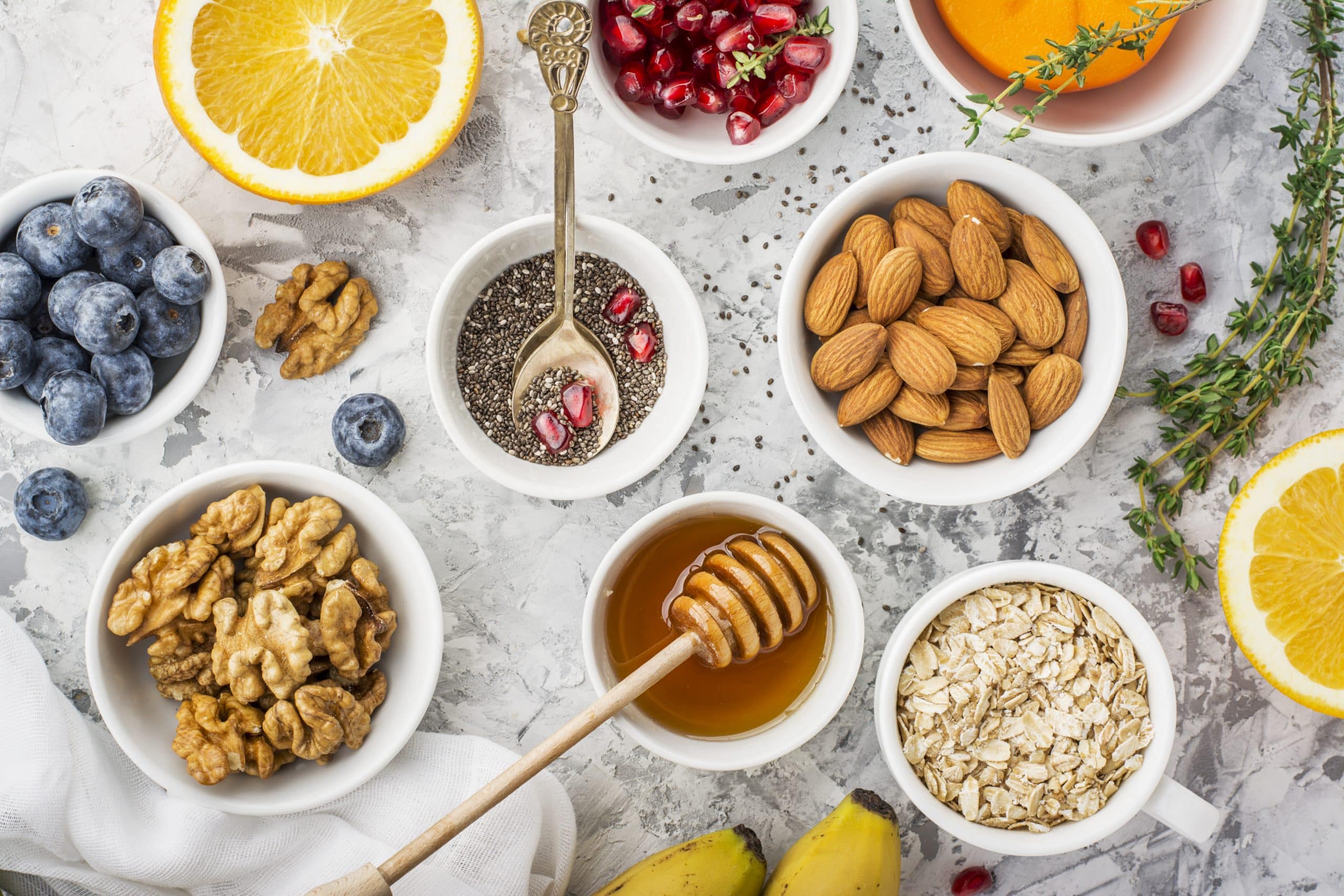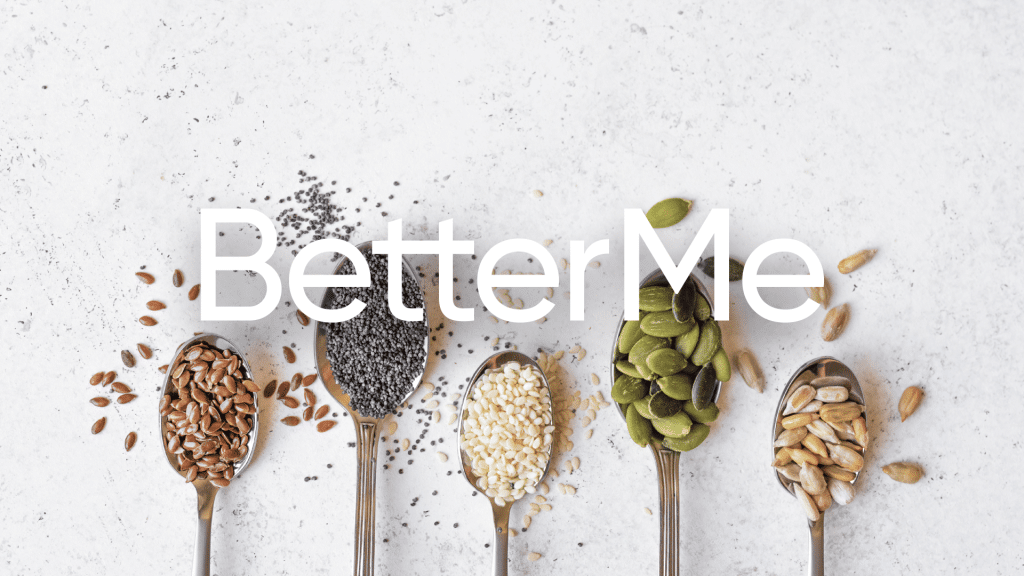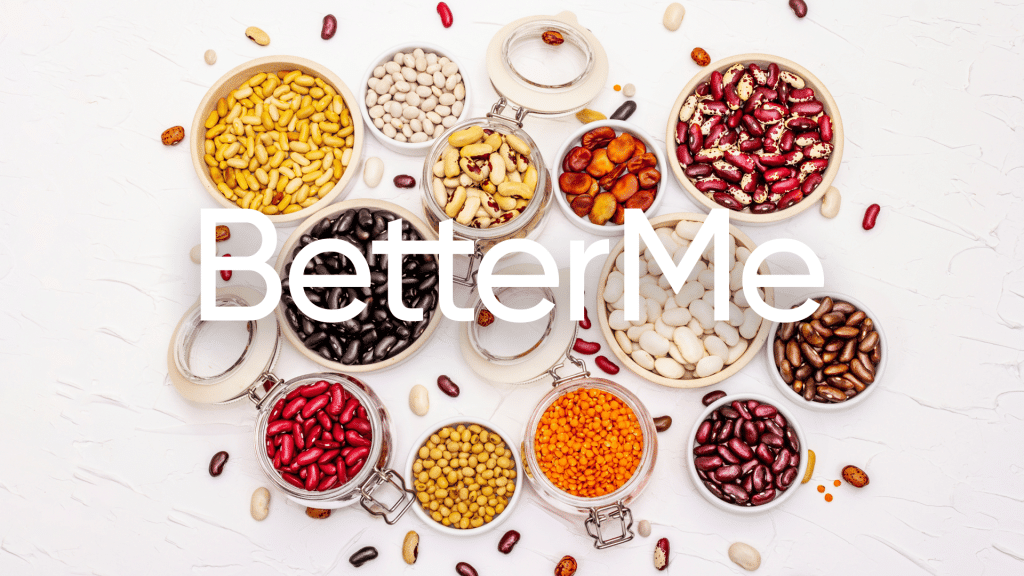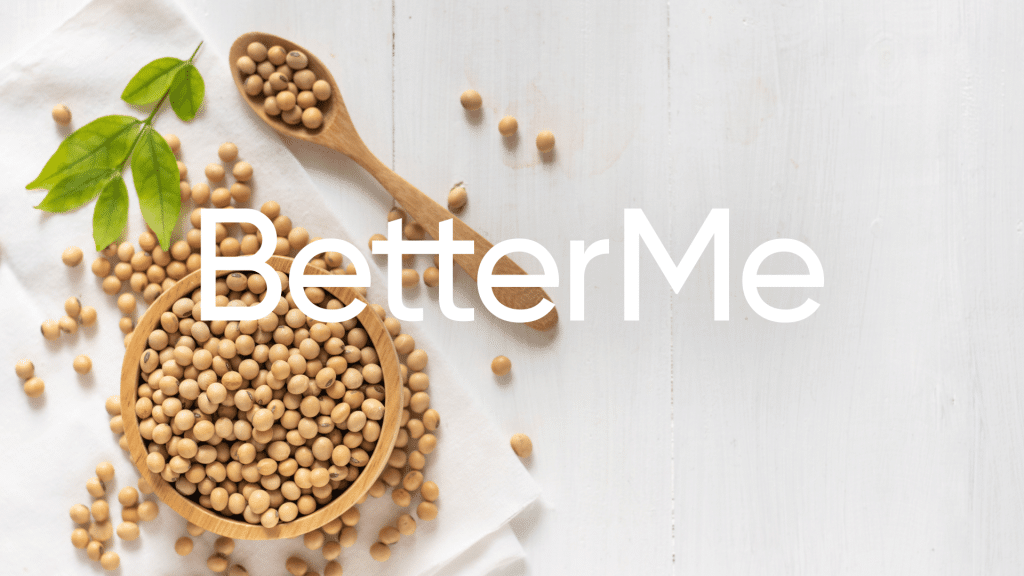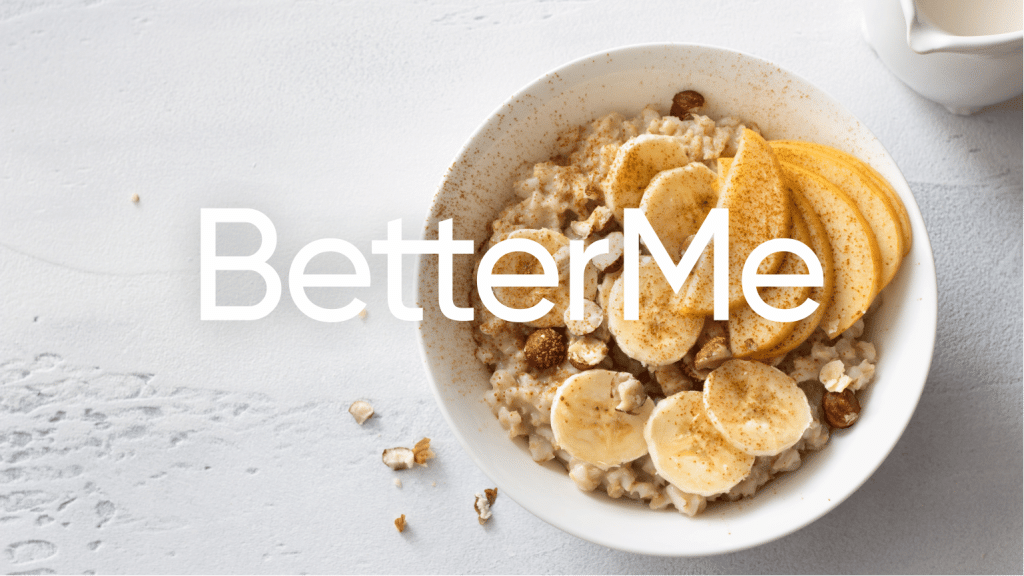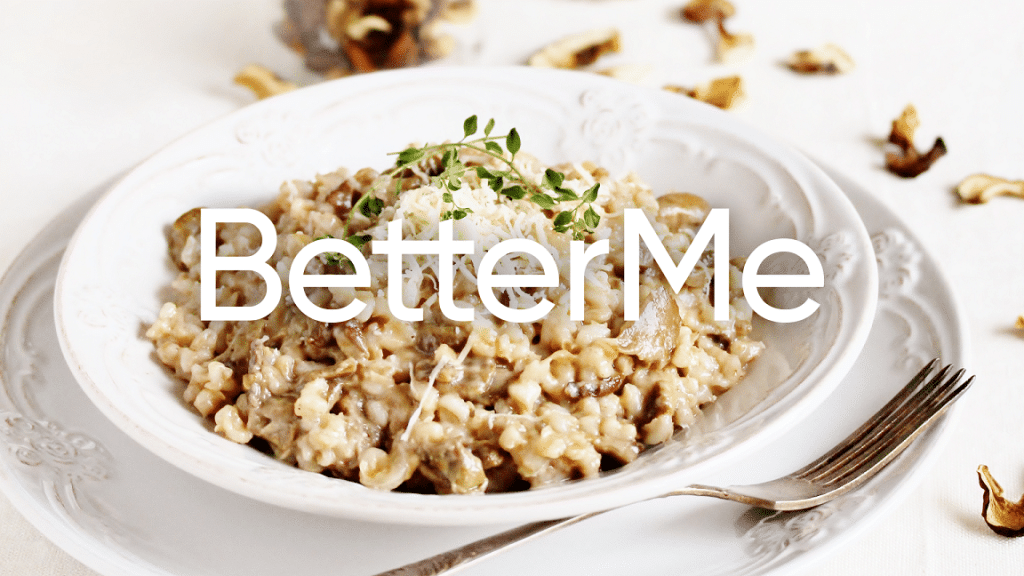Botanically, a grain is any dry, edible seed that comes from a grass-like plant. Whole grains have received a lot of attention lately, and for good reason. They’re an excellent source of fiber and other important nutrients, including vitamins, minerals, protein, and antioxidants (14). This richness of nutrients is due to whole grains containing all three parts of the grain kernel: the bran, germ, and endosperm. Research shows that eating whole grains may help reduce the risk of chronic diseases like heart disease, diabetes, and certain cancers (15). With that in mind, what are the best whole grains to eat? Read on for a list of 15 of the healthiest grains you should be incorporating into your diet.
Get your personalized
meal plan!
2 Types Of Whole Grains
Grains are categorized into two main types based on whether or not they are part of the Poaceae botanical family: true grains and pseudograins.
- True grains, also called cereals, are the seeds of certain grasses in the Poaceae family. This includes wheat, oats, barley, rye, corn, rice, millet, sorghum, teff, and triticale.
- Pseudo-grains are similar to true grains in that they’re often used in the same way and have a similar nutrient profile. However, they’re not technically considered grains because they don’t come from grasses in the Poaceae family. Rather, they’re the seeds of plants in other botanical families.
Examples of pseudo-grains include quinoa, buckwheat, amaranth, and wild rice. These are all excellent sources of nutrients like fiber, protein, vitamins, and minerals.
Let’s take a closer look at each of the grains in these two categories, their health benefits, and how to incorporate them into your diet.
1. Wheat
Wheat is a cereal grain that’s commonly used to make bread, pasta, cereal, and many other food products. It’s also available in several different forms, including whole wheat, white wheat, and sprouted wheat.
Whole wheat contains all three parts of the grain kernel — the bran, germ, and endosperm. This makes it a good source of fiber and other important nutrients like vitamins, minerals, and antioxidants (12).
Wheat is also a good source of protein, with around 7 grams in a 1-ounce (28-gram) serving. It also contains gluten, a protein that provides structure and elasticity to dough.
While wheat is generally considered healthy, some people are sensitive to gluten or have celiac disease, an autoimmune disorder that’s triggered by eating gluten. If you have either of these conditions, you should avoid wheat and other gluten-containing grains.
The relatively high fat content of wheat may make it more susceptible to rancidity. Refining removes the bran and germ, which contain most of the fat. This is why white wheat and products made from it have a longer shelf life, but they lack fiber and some of the other nutrients found in whole wheat products.
2. Oats
Oats are a whole grain that’s commonly used in breakfast cereals, oatmeal, granola, and energy bars. They’re a good source of several important nutrients, including fiber, protein, vitamins, minerals, and antioxidants (1).
Oats are particularly high in soluble fiber, which can help reduce cholesterol levels and improve heart health. Soluble fiber is also good for your gut— it helps keep you regular and can relieve constipation.
Nutrient-wise, oats are a good source of selenium, a mineral that’s important for thyroid health, and manganese, which is needed for bone development and wound healing.
To eat oats, you can cook them in water or milk and add toppings like fruit, nuts, or seeds. You can also find oats in many packaged breakfast foods and snacks, such as oatmeal packets, granola bars, and muesli.
Read More: Grain-Free Diet: Healthy Or Not? Here’s What The Experts Say
3. Barley
Barkey was one of the first grains to be cultivated and is still grown in many parts of the world, including Europe, Asia, Africa, and North America.
According to the Grains & Legumes Nutrition Council, most of the world’s barley supply is used to make beer. However, in North African countries where wheat is difficult to grow, barley is a staple grain.
Barley as a whole grain is available in several forms, including hulled, pearl, and dehulled. It’s a good source of fiber, vitamins, minerals, and antioxidants. It is particularly rich in beta-glucan, a type of soluble fiber that has been linked to several health benefits, including cholesterol-lowering effects and a reduced risk of heart disease (2).
Barley is also a good source of selenium, copper, phosphorus, and manganese. These minerals are important for many bodily functions, including thyroid function, bone development, and immunity.
To cook barley, you can simmer it in water or broth until tender. You can then use it in soups, stews, casseroles, or as a side dish. Barley is also sometimes ground into flour and used to make bread, pasta, and other baked goods. It contains a protein which is similar enough to gluten to cause a reaction in people with celiac disease or gluten sensitivity, so those people need to avoid it.
4. Rye
Rye is a cereal grain that grows well in cold, harsh climates which makes it a staple in Scandinavian and Eastern European countries. It’s available in several different forms, including whole rye, rye flakes, and rye flour.
Rye is a good source of fiber, vitamins, minerals, and antioxidants. It also contains a protein which is similar enough to gluten to cause a reaction in people with celiac disease or gluten sensitivity, so those people need to avoid it.
Rye is particularly rich in soluble fiber, which can help reduce cholesterol levels and improve heart health. It’s also a good source of lignans — plant compounds that have been linked to a reduced risk of several types of cancer, including breast, ovarian, and prostate cancer (4).
To eat rye, you can cook it like other grains or use it in baked goods. Rye flour can be used to make bread, crackers, muffins, and other baked goods. It can also be used as a thickener in soups and sauces.
Looking for a way to break the vicious cycle of weight loss and tone up all the jiggly parts? Watch the extra pounds fly off and your muscles firm up with the BetterMe app!
5. Corn (Maize)
Corn is a grain with an exceptionally high fat content — about 5 times that of other grains. It’s also high in sugar and carbohydrates. For these reasons, it’s often sold degermed, or with the germ and bran removed. This process reduces the fat content, but it also lowers the nutrient level.
Corn is a good source of fiber, vitamins, minerals, and antioxidants. The kernels are particularly rich in lutein and zeaxanthin — two nutrients that are important for eye health.
Corn is also a good source of B vitamins — nutrients that are important for energy metabolism, nervous system function, and cell growth (9).
To eat corn, you can cook the kernels in water or steam them. You can also add them to soups, stews, casseroles, or salads. Corn is also often used as a food ingredient, such as in cornmeal, cornstarch, and hominy.
6. Millet
Millet is a small, round grain that’s traditionally popular in Africa and Asia. It’s available in several different colors, including white, yellow, red, and gray. Millet is a good source of fiber, vitamins, minerals, and antioxidants.
Millet is particularly rich in niacin, which is important for energy metabolism and nervous system function. It’s also a good source of magnesium, a mineral that’s important for bone health and blood sugar control (7).
To eat millet, you can cook it in water or broth until tender. You can then use it in soups, stews, casseroles, or as a side dish. Millet is also sometimes ground into flour and used to make porridge, bread, pasta, and baked goods.
7. Amaranth
Amaranth is a grain you may not have heard of, but it’s well worth seeking out. This gluten-free grain has a nutty flavor and chewy texture, and is packed with essential nutrients like fiber, protein, and iron. It is one of the few plant-based sources of complete protein.
Amaranth is also a good source of magnesium, which is important for maintaining healthy blood pressure levels (11).Try cooking amaranth in place of rice or quinoa for a nutrient-packed side dish, or using it to make a hearty porridge for breakfast.
8. Quinoa
Quinoa is an ancient grain in the Amaranth family. It’s a pseudo-cereal, meaning it’s not technically a grain, but it shares many of the same characteristics. Quinoa is also a complete protein—meaning it contains all nine essential amino acids—and is also high in fiber, magnesium, and iron (13).
Quinoa has a light, nutty flavor and can be used in place of rice or other grains in most recipes. It’s especially delicious in salads, pilafs, and veggie-packed bowls.
9. Buckwheat
Another pseudo-cereal, buckwheat is a gluten-free grain that’s actually the seeds of a fruit. It’s harvested from the Fagopyrum esculentum plant, and has an earthy, nutty flavor.
Buckwheat is high in fiber and protein, and is a good source of magnesium, phosphorus, and zinc (6). It can be used in place of rice or other grains in most recipes, or cooked into a porridge for breakfast.
10. Bulgur
Bulgur is a type of whole wheat that’s been parboiled and then dried. It’s popular in Middle Eastern cuisine, and has a nutty, slightly sweet flavor.
Bulgur is a good source of fiber and protein, and contains important vitamins and minerals like iron, magnesium, and phosphorus (3). It is the main ingredient in tabbouleh, and can be used in place of rice or other grains in most recipes.
Read More: Is Barley Gluten Free? The Scientific Truth Behind This Grain
11. Einkorn
Einkorn is an ancient wheat grain that’s gaining popularity in the modern world for its nutritional benefits. This whole grain is relatively lower in gluten than other types of wheat, but it still may trigger symptoms in people with celiac disease or gluten sensitivities.
Additionally, einkorn is loaded with protein, fiber, and minerals like iron and potassium (8).Einkorn has a nutty, slightly sweet flavor, and can be used in place of other wheat grains in most recipes. It’s especially delicious in breads, pancakes, and muffins.
12. Farro
Farro is an ancient wheat grain that’s been popular in Italian cuisine for centuries. It has a nutty, chewy texture and a slightly sweet flavor.
Farro is a good source of fiber and protein, and contains important vitamins and minerals like iron, magnesium, and phosphorus (5). It is used in Tuscan soup, and can be used in place of other wheat grains in most recipes.
13. Spelt
Spelt is an ancient wheat grain that’s making a comeback in the modern world. It’s a nutrient-rich grain that’s high in fiber and protein, and low in gluten. Additionally, spelt contains important vitamins and minerals like iron, magnesium, and phosphorus (5).
Spelt has a nutty, slightly sweet flavor, and can be used in place of other wheat grains in most recipes. It’s especially delicious in breads, rolls, and muffins.
If you tend to let yourself off the hook, raise the white flag when things get tougher than you expected, send yourself on an unconscious binge-eating trip – BetterMe app is here to help you leave all of these sabotaging habits in the past!
14. Teff
Teff is a tiny grain that packs a big nutritional punch. It’s native to Ethiopia and Eritrea, and has a nutty, slightly sweet flavor.
Teff is one of the most nutrient-dense grains available, and is a good source of fiber, protein, and iron. Additionally, teff contains important vitamins and minerals like magnesium, phosphorus, and potassium (5).It is often fermented and used to make injera, a type of sourdough flatbread.
15. Wild Rice
Wild rice is actually not a true rice, but the seeds of an aquatic grass. Not to be confused with brown rice, wild rice is black and has a chewy, nutty texture. It’s native to North America, and is a popular ingredient in many Native American dishes.
Wild rice is a good source of fiber and protein, and contains important vitamins and minerals like magnesium, phosphorus, and potassium (10). It can be used in place of brown rice or other grains in most recipes. A wild rice salad is a perfect side dish for any summer barbecue.
The Bottom Line
Grains are an important part of a healthy diet, and there are many different types to choose from. Whole grains are the best option, as they contain more fiber and nutrients than refined grains. Be sure to include a variety of grains in your diet, as each one offers unique health benefits.
DISCLAIMER:
This article is intended for general informational purposes only and does not serve to address individual circumstances. It is not a substitute for professional advice or help and should not be relied on for making any kind of decision-making. Any action taken as a direct or indirect result of the information in this article is entirely at your own risk and is your sole responsibility.
BetterMe, its content staff, and its medical advisors accept no responsibility for inaccuracies, errors, misstatements, inconsistencies, or omissions and specifically disclaim any liability, loss or risk, personal, professional or otherwise, which may be incurred as a consequence, directly or indirectly, of the use and/or application of any content.
You should always seek the advice of your physician or other qualified health provider with any questions you may have regarding a medical condition or your specific situation. Never disregard professional medical advice or delay seeking it because of BetterMe content. If you suspect or think you may have a medical emergency, call your doctor.
SOURCES:
- A Review of Health-Beneficial Properties of Oats (2021, nih.gov)
- Association of Lifelong Intake of Barley Diet with Healthy Aging: (2019, nih.gov)
- Bioactive healthy components of bulgur (2012, nih.gov)
- Effects of whole grain rye, with and without resistant starch type 2 supplementation, on glucose tolerance, gut hormones, inflammation and appetite regulation in an 11–14.5 hour perspective (2017, nih.gov)
- Health benefits of ancient grains. Comparison among bread made with ancient, heritage and modern grain flours in human cultured cells (2018, nih.gov)
- Health Benefits of Buckwheat (Fagopyrum Esculentum), Potential Remedy for Diseases, Rare to Cancer: (2021, nih.gov)
- Health benefits of finger millet (Eleusine coracana L.) polyphenols and dietary fiber: a review (2014, nih.gov)
- Integrated Evaluation of the Potential Health Benefits of Einkorn-Based Breads (2017, nih.gov)
- Macronutrients in Corn and Human Nutrition (2017, nih.gov)
- Nutritional constituents and health benefits of wild rice (Zizania spp.) (2014, nih.gov)
- The Dual Nature of Amaranth—Functional Food and Potential Medicine (2022, nih.gov)
- The contribution of wheat to human diet and health (2015, nih.gov)
- Quinoa (Chenopodium quinoa Willd.): An Overview of the Potentials of the “Golden Grain” and Socio-Economic and Environmental Aspects of Its Cultivation and Marketization (2020, nih.gov)
- Whole Grains (n.d., harvard.edu)
- Whole-grain consumption and chronic disease: protective mechanisms (1997, nih.gov)
